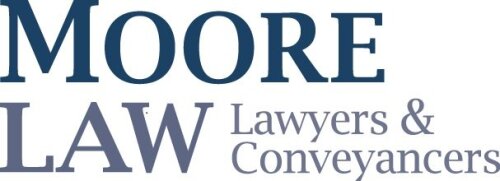Best Private Client Lawyers in Auckland
Share your needs with us, get contacted by law firms.
Free. Takes 2 min.
List of the best lawyers in Auckland, New Zealand
About Private Client Law in Auckland, New Zealand
Private Client law in Auckland encompasses a range of legal services tailored to individuals and families rather than businesses or corporations. Typical private client work includes estate planning, wills, trusts, asset protection, elder law, powers of attorney, and managing personal or family wealth. Auckland, being New Zealand's largest city, has a diverse population with unique needs in these areas. Law firms in Auckland offer specific guidance due to the local property, cultural, and legislative environment which often requires advice tailored to New Zealand's laws and Auckland's unique context.
Why You May Need a Lawyer
There are many reasons you might seek the expertise of a private client lawyer in Auckland. Common situations include:
- Drafting a will to ensure your assets are distributed according to your wishes
- Setting up a trust to provide for your children or protect family wealth
- Applying for or challenging a grant of probate after a loved one passes away
- Dealing with complex estate administration, especially if there are assets overseas or blended families
- Seeking advice on enduring powers of attorney for financial or personal care decisions
- Minimizing tax liability through effective estate and asset planning
- Arranging living arrangements or care planning for elderly family members
- Navigating disputes involving inheritances or family trusts
- Ensuring your wishes are carried out if you become incapacitated
Local Laws Overview
Private Client law in Auckland is governed by several statutes and legal principles unique to New Zealand. Key areas include:
- The Wills Act 2007, which sets requirements for making and changing wills
- The Trusts Act 2019, modernizing trust law and outlining duties of trustees
- The Estate Administration Act 1969, dealing with how estates are managed after death
- The Property (Relationships) Act 1976, which addresses rights of partners in relationships and how property is divided upon separation or death
- Protection of Personal and Property Rights Act 1988, concerning powers of attorney and mental capacity issues
- Family Protection Act 1955 and Law Reform (Testamentary Promises) Act 1949, which allow certain family members or individuals to challenge wills under certain circumstances
- Specific Auckland factors, such as high property values and multicultural considerations, also play a role
Frequently Asked Questions
What is a will, and why should I have one?
A will is a legal document that specifies how your assets will be distributed after your death. Having a will can reduce stress for your loved ones and help avoid disputes.
Who can challenge a will in Auckland?
Family members such as spouses, children, or dependents can challenge a will under the Family Protection Act if they believe reasonable provision has not been made for them.
What is a trust, and why would I set one up?
A trust is a legal arrangement where assets are managed by trustees for the benefit of beneficiaries. Trusts are used for asset protection, estate planning, and to provide for minors or individuals with special needs.
What are enduring powers of attorney?
Enduring powers of attorney (EPA) allow you to appoint someone to make decisions about your property or personal care if you become incapacitated.
How do property relationship laws affect my estate?
The Property (Relationships) Act enables partners or spouses to make claims on your estate, regardless of what your will says, in order to ensure fair division.
Do I need a lawyer to write my will?
While it is not legally required to use a lawyer, professional advice is highly recommended to ensure your will is valid and covers all important matters.
How is estate tax handled in New Zealand?
New Zealand currently does not have estate or inheritance taxes, but other issues such as income tax and changes in property ownership can have tax implications.
What happens if someone dies without a will in Auckland?
Their assets are distributed according to the laws of intestacy, which may not reflect their wishes and can cause delays or disputes among heirs.
Can I revoke or change my will?
Yes. Your will can be updated or revoked at any time as long as you have the mental capacity to do so, following the correct legal procedures.
Are there special considerations for blended families?
Yes. Stepchildren, second marriages, and blended families can complicate inheritance. Tailored advice helps ensure everyone is provided for as intended.
Additional Resources
When looking for more information or help regarding private client matters in Auckland, the following resources can be particularly helpful:
- New Zealand Law Society - Offers directories of legal professionals and resources for the public.
- Citizens Advice Bureau - Provides free, confidential advice on legal and personal issues.
- Ministry of Justice - Information about wills, estates, trusts, and powers of attorney in New Zealand.
- Auckland Community Law Centre - Free legal assistance for those who qualify.
- Public Trust - Government-owned organization that provides wills, estate, and trustee services.
Next Steps
If you need legal assistance with a private client matter in Auckland, consider taking the following steps:
- Identify your specific needs, such as writing a will, setting up a trust, or managing an estate.
- Gather any relevant documents, such as property deeds, existing wills, family details, and financial records.
- Research and contact a lawyer or law firm specializing in private client law in Auckland.
- Book an initial consultation to discuss your situation, get advice, and understand your options.
- Ask about fees and processes before proceeding, to ensure you have a clear understanding of costs and timelines.
Taking these steps can help ensure your wishes are carried out appropriately, assets are protected, and legal requirements are met effectively and efficiently.
Lawzana helps you find the best lawyers and law firms in Auckland through a curated and pre-screened list of qualified legal professionals. Our platform offers rankings and detailed profiles of attorneys and law firms, allowing you to compare based on practice areas, including Private Client, experience, and client feedback.
Each profile includes a description of the firm's areas of practice, client reviews, team members and partners, year of establishment, spoken languages, office locations, contact information, social media presence, and any published articles or resources. Most firms on our platform speak English and are experienced in both local and international legal matters.
Get a quote from top-rated law firms in Auckland, New Zealand — quickly, securely, and without unnecessary hassle.
Disclaimer:
The information provided on this page is for general informational purposes only and does not constitute legal advice. While we strive to ensure the accuracy and relevance of the content, legal information may change over time, and interpretations of the law can vary. You should always consult with a qualified legal professional for advice specific to your situation.
We disclaim all liability for actions taken or not taken based on the content of this page. If you believe any information is incorrect or outdated, please contact us, and we will review and update it where appropriate.
Browse private client law firms by service in Auckland, New Zealand
Auckland, New Zealand Attorneys in related practice areas.

















